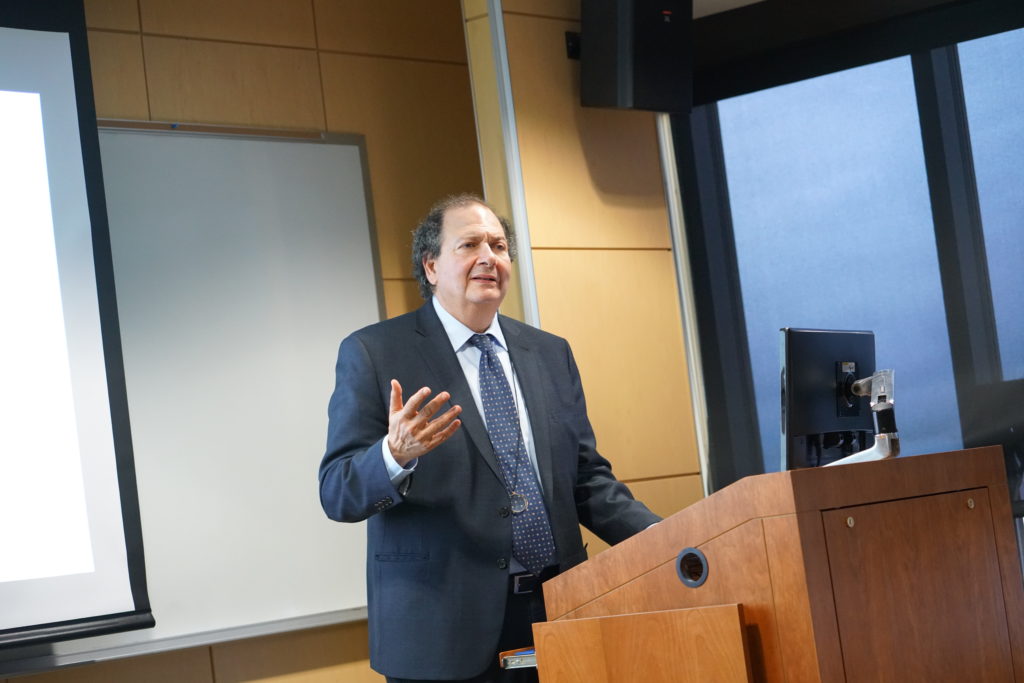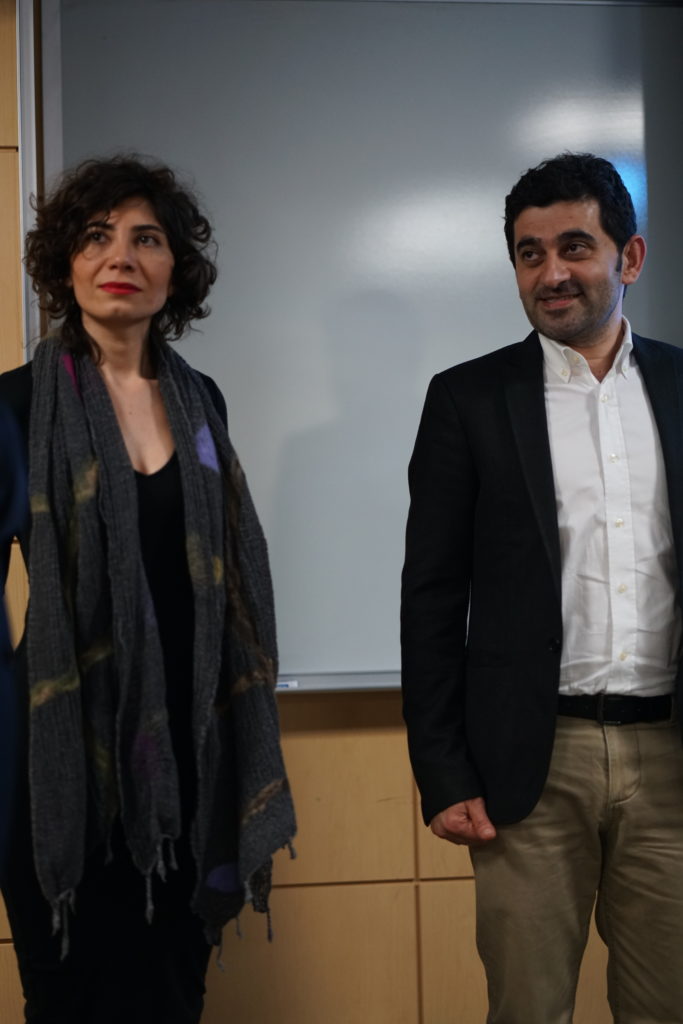MEDFORD, Mass. – The Fletcher School of Law and Diplomacy of Tufts University held its Food Symposium on food and conflict on April 19 to 20. As part of this symposium, the film “Haven’t We Shared Much Salt and Bread Together” was screened on April 19 and a discussion and question and answer session held with the film’s producers, Ihsan Karayazi and Armine Avetisyan. Prof. Nadim Shehadi, Director of the Fares Center for Eastern Mediterranean Studies at the Fletcher School, served as moderator.

Karayazi is the Kars office representative of the Caucasus Business and Development Network, and president of Kars City and Culture Research Association (KasKa). He first went to Kars as a student and stayed ten years there with various jobs. He traveled to Armenia across the border because the mayor at the time was interested in establishing such ties.

First, the film was screened. It depicted a group of women from the Armenian town of Gyumri visiting the Turkish town of Kars, and women from Kars going to Gyumri to observe the similar cooking and lifestyles. Some of the Kars women knew that certain foods or customs remained from the Armenians who used to live there, while some of the Gyumri Armenians understood some Turkish and knew that their families originally came from Kars or other parts of Turkey across the border. They told some of their family stories from the Armenian Genocide and how their parents or ancestors escaped.
After the film, the discussion began. Dr. Shehadi declared that he saw the film three times and each time he noticed something new. He said that because he did not know either Armenian or Turkish, it took him time to even understand who was who. Karayazi said this was done on purpose.
Avetisyan pointed out that there were so many common words in the everyday language of each group of women though they had been separated from one another for one hundred years. The region, climate and geography formed the cuisine of both peoples, which explains the similarity.







